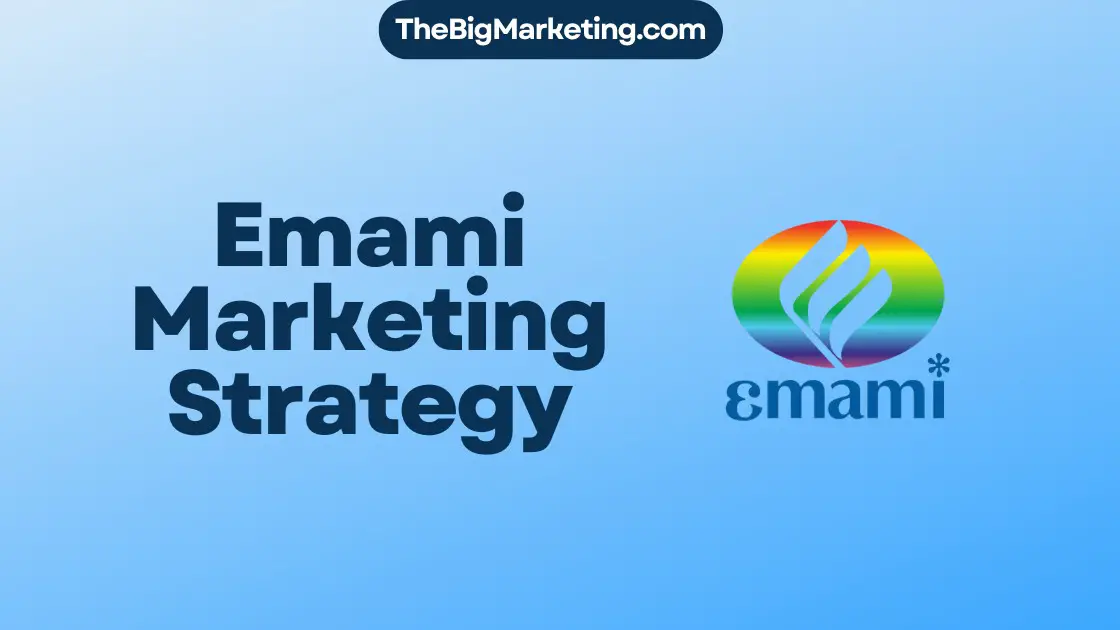Value creation in marketing is a fundamental concept that drives business growth and success. It involves delivering benefits and exceeding customer expectations to build strong relationships and foster loyalty. By understanding the needs and preferences of customers, organizations can create and offer products or services that provide exceptional value. Through strategic decisions in product features, pricing, distribution channels, and messaging, companies can enhance the overall customer experience and differentiate themselves from competitors.
Value creation in marketing goes beyond just meeting customer needs; it also considers organizational goals and shareholder returns. By effectively creating value for customers, businesses can generate long-term profitability and sustainable growth. Additionally, value creation allows companies to make positive contributions to society and the environment by embracing social responsibility and sustainability practices. Overall, value creation is a multifaceted strategy that encompasses various aspects of marketing and business.
Key Takeaways:
- Value creation in marketing involves delivering benefits that exceed customer expectations.
- Strategic decisions in product features, pricing, distribution channels, and messaging contribute to value creation.
- Value creation drives business success, customer loyalty, and shareholder returns.
- Sustainability and social responsibility are integral to value creation in marketing.
- Measuring the impact of value creation efforts is crucial for continuous improvement and growth.
The Significance of Value Creation in Marketing
Value creation plays a crucial role in the field of marketing, offering numerous benefits to businesses and customers alike. By focusing on the importance of value creation, businesses can effectively engage and retain customers while driving overall success.
Importance of Value Creation
One of the key benefits of value creation is the ability for businesses to differentiate themselves from competitors. By offering unique and valuable benefits to customers, organizations can stand out in the marketplace and attract loyal consumers.
Value creation also leads to increased customer satisfaction. By exceeding customer expectations and delivering exceptional value, businesses can foster long-term customer loyalty, resulting in repeat business and positive word-of-mouth.
Furthermore, value creation enables businesses to generate positive returns for shareholders in the long term. By focusing on providing value to customers, companies can drive sales and profitability, ultimately benefiting their shareholders.
Benefits of Value Creation
A significant benefit of value creation is its ability to fulfill human needs. Through the development and delivery of products and services that satisfy customer needs and desires, businesses play a vital role in improving the lives of individuals.
Value creation promotes innovation within organizations. By constantly striving to create unique and valuable offerings, businesses can push the boundaries of what is possible, leading to continuous improvement and advancements in various industries.
Additionally, value creation allows businesses to make positive contributions to the community and the environment. By considering the social and environmental impacts of their products and operations, organizations can act responsibly and contribute to a sustainable future.
| Benefits of Value Creation | Explanation |
|---|---|
| Differentiation | Helps businesses stand out from competitors. |
| Customer Satisfaction | Leads to long-term customer loyalty. |
| Shareholder Returns | Generates positive financial outcomes. |
| Fulfilling Human Needs | Improves customers’ lives and well-being. |
| Promoting Innovation | Drives advancements in various industries. |
| Community and Environmental Contributions | Making positive social and environmental impacts. |
Strategies for Value Creation in Marketing
To maximize value creation in marketing, organizations employ various strategies and processes that align with their business goals. These strategies focus on selecting target segments, determining product offerings, implementing effective supply chains, and developing compelling marketing messages. By consistently refining their value creation process, organizations can enhance competitiveness and achieve sustainable business growth.
1. Identifying Target Segments
Value creation in marketing begins with identifying the right target segments to serve. This involves analyzing market research data, customer demographics, and psychographics to understand the needs, preferences, and behaviors of potential customers. By targeting specific segments, organizations can tailor their products and services to deliver maximum value to their intended audience.
2. Determining Product Offerings
Developing the right product or service offerings is a critical aspect of value creation. Organizations must evaluate customer needs and market trends to design offerings that meet those demands effectively. This may involve conducting market research, gathering customer feedback, and monitoring industry developments to stay relevant and responsive.
3. Implementing Effective Supply Chains and Distribution Channels
An efficient supply chain and distribution network are essential for value creation in business. By streamlining the flow of products or services from production to customers, organizations can ensure timely delivery, minimize costs, and optimize customer satisfaction. This may involve partnering with reliable suppliers, optimizing inventory management, and leveraging technology to enhance operational efficiency.
4. Developing Compelling Marketing Messages
Communicating the value of products or services is crucial in attracting and retaining customers. Organizations must develop compelling marketing messages that effectively highlight the unique benefits and value proposition they offer. These messages should resonate with target customers, address their pain points, and highlight how the organization’s offerings can meet their needs and exceed their expectations.
Measuring Value Creation
Measuring the effectiveness of value creation strategies is essential to evaluate the impact and make data-driven decisions. Organizations employ various metrics to measure value creation, including customer satisfaction, customer loyalty, and financial performance indicators. Analyzing these metrics enables organizations to fine-tune their strategies, identify areas for improvement, and continuously enhance their value creation processes.
In summary, value creation in marketing involves implementing strategies that align with the organization’s goals, selecting target segments, determining product offerings, implementing effective supply chains and distribution channels, and developing compelling marketing messages. By continuously refining and improving these strategies, organizations can enhance competitiveness, achieve sustainable growth, and maximize value for both customers and the business.
The Role of Chief Marketing Officers in Value Creation
Chief Marketing Officers (CMOs) play a crucial role in driving value creation for businesses by guiding other company officers in creating real value for their target customers. As leaders in the marketing department, CMOs are responsible for developing and executing marketing strategies that align with the organization’s overall goals. Their involvement spans every stage of the value creation process, from generating innovative product ideas to refining and testing them in the market.
In collaboration with other key stakeholders within the organization, such as product managers, sales teams, and customer support, CMOs ensure that the value created aligns with the needs and preferences of the target customers. By gaining a deep understanding of the target customers, CMOs can effectively position the company’s products or services, differentiate them from competitors, and communicate their unique value proposition.
To illustrate the role of CMOs in value creation, consider the example of an electronics company launching a new smartphone. The CMO would lead the marketing team in conducting market research to understand the preferences and pain points of the target customers. With this knowledge, they would collaborate with product managers and engineers to develop a smartphone that addresses these needs and offers distinct features.
The CMO would then work closely with the sales and marketing teams to create compelling messaging and promotional campaigns that highlight the value of the smartphone to the target customers. By leveraging a customer-centric approach, the CMO ensures that the marketing activities are aligned with the value created and resonate with the target customers, ultimately driving revenue growth and customer satisfaction.
Collaboration with Cross-Functional Teams
CMOs collaborate with cross-functional teams within the organization to facilitate value creation. By working closely with product managers, CMOs ensure that marketing strategies align with the features and benefits of the company’s products or services. They also collaborate with sales teams to understand customer feedback and market trends, which helps refine value propositions and marketing messages.
Additionally, CMOs collaborate with customer support teams to gather insights on customer needs and pain points, which can inform product development and marketing strategies. This collaboration across different departments enables CMOs to create a synergistic approach to value creation, where all efforts are focused on delivering maximum value to the target customers.
Driving Strategic Decision-Making
CMOs play a key role in driving strategic decision-making within the organization. By staying updated on market trends, competitor analysis, and customer insights, CMOs provide valuable input to the executive team in shaping the company’s overall strategic direction. Their involvement in value creation ensures that marketing strategies are aligned with the company’s long-term goals and objectives.
CMOs also play a vital role in allocating resources effectively to support value creation initiatives. By understanding the potential returns and impact of different marketing activities, CMOs can allocate budgets and resources to initiatives that have the highest potential to create value for the company and its target customers.
Overall, CMOs are instrumental in driving value creation by leading marketing strategies, collaborating with cross-functional teams, and driving strategic decision-making. Their ability to understand and meet the needs of target customers ensures that value creation efforts align with customer expectations, leading to enhanced customer satisfaction, loyalty, and ultimately, business success.
Value Creation in Business: A Comprehensive Approach
Value creation in business extends beyond purely financial aspects. It encompasses the development of strong stakeholder relationships with customers, employees, suppliers, and the broader community. By fostering these relationships, businesses can cultivate a sense of trust and loyalty, ultimately driving long-term success.
An essential component of value creation lies in innovation. By continuously striving for new ideas and approaches, businesses can differentiate themselves in the market and offer unique solutions to their customers’ needs. Embracing innovation allows businesses to stay ahead of the competition and establish a distinct position in the industry.
Efficiency is another critical aspect of value creation. By streamlining operations and optimizing processes, businesses can enhance productivity and reduce costs. This focus on efficiency enables organizations to deliver greater value to customers while maximizing their own profitability.
Distinctiveness plays a vital role in value creation as well. Businesses must strive to develop a unique and recognizable brand identity that sets them apart from competitors. This distinctiveness can be achieved through a combination of factors, such as exceptional product quality, outstanding customer service, or innovative marketing strategies.
Furthermore, sustainability is a critical consideration in value creation. Businesses should prioritize environmental and social responsibility by implementing sustainable practices and making positive contributions to society. By demonstrating a commitment to sustainability, organizations can attract environmentally conscious customers and gain a competitive edge.
A comprehensive approach to value creation encompasses stakeholder relationships, innovation, efficiency, distinctiveness, and sustainability. By embracing these elements, businesses can achieve enduring success, attract investment capital, and remain competitive in an ever-evolving business landscape.
Enhancing Stakeholder Relations for Sustainable Success
Successful value creation in business goes beyond financial stakeholders. Building strong relationships with stakeholders such as customers, employees, suppliers, and the wider community is essential for sustainable success. Adopting a customer-centric approach allows businesses to understand and meet customer needs effectively. By personalizing offerings and continuously improving based on customer feedback, organizations can create long-term value.
Employee engagement and development play a crucial role in value creation. Engaged employees contribute to creating value for customers through their dedication and commitment. Open communication and recognition of employee contributions foster a culture of collaboration and innovation, leading to enhanced value creation efforts.
Key Strategies for Enhancing Stakeholder Relations
1. Adopt a customer-centric approach: Understand customer needs, personalize offerings, and continuously improve based on customer feedback.
2. Prioritize employee engagement: Invest in employee development and create a supportive work environment to foster employee engagement and motivation.
3. Encourage open communication: Establish channels for open communication within the organization, allowing stakeholders to express their ideas, concerns, and suggestions.
4. Recognize employee contributions: Acknowledge and reward employee contributions to fostering a culture of collaboration and innovation.
Building and nurturing stakeholder relationships is crucial for sustainable value creation in business. By adopting a customer-centric approach, prioritizing employee engagement, fostering open communication, and recognizing employee contributions, organizations can enhance stakeholder relationships and drive long-term success.
Efficiency and Cost Management for Value Creation
In today’s competitive business landscape, efficiency and cost management are critical elements for organizations looking to create value and gain a sustainable advantage. By optimizing operations and resource allocation, businesses can drive profitability and achieve long-term success. Let’s explore how efficiency and cost management contribute to value creation.
The Benefits of Efficiency
Efficiency is the key to maximizing output while minimizing inputs, resulting in increased productivity and decreased costs. By streamlining processes and eliminating unnecessary steps, businesses can optimize their operations and enhance resource utilization. This allows organizations to deliver products and services more effectively, meet customer demands promptly, and reduce lead times.
Efficiency also promotes agility and flexibility, enabling businesses to respond quickly to market changes and customer needs. By eliminating inefficiencies, organizations can allocate resources more effectively, ensuring that every dollar spent contributes to value creation. This approach minimizes waste, reduces operating costs, and increases profitability.
Cost Management Strategies
Effective cost management is essential for businesses seeking to create value. By carefully evaluating and controlling expenses, organizations can increase their profit margins and allocate resources strategically. Here are some key cost management strategies:
- Procurement Optimization: Identifying cost-saving opportunities in the supply chain, negotiating favorable contracts with suppliers, and implementing smart purchasing decisions.
- Lean Operations: Applying lean principles to eliminate waste, streamline processes, and improve overall operational efficiency.
- Automation and Technology: Investing in automation and technology solutions to reduce manual labor, increase productivity, and minimize errors.
- Energy Efficiency: Implementing energy-efficient practices and effective utility management to reduce utility costs and minimize the environmental impact.
Resource Allocation and Value Creation
Resource allocation plays a crucial role in value creation. By allocating resources judiciously, businesses can optimize their capabilities, streamline operations, and create value for customers. Effective resource allocation ensures that the right resources are allocated to the right tasks, resulting in improved productivity and reduced costs.
When resources are allocated strategically, organizations can focus on innovation, quality improvement, and customer satisfaction. This allows businesses to deliver superior products and services, enhance their competitive advantage, and foster customer loyalty.
Achieving Long-Term Success
Efficiency and cost management are not just short-term strategies but also contribute to long-term success. By consistently monitoring and evaluating operations, organizations can identify areas for improvement and implement changes that drive efficiency and cost savings. This enables businesses to adapt to market conditions, stay competitive, and continue creating value for customers.
In summary, efficiency and cost management are integral components of value creation. By optimizing operations, controlling costs, and allocating resources effectively, organizations can enhance profitability, improve customer satisfaction, and achieve sustainable success.
| Benefits of Efficiency and Cost Management |
|---|
| Increased productivity and decreased costs |
| Agility and flexibility to respond to market changes |
| Optimized resource utilization and reduced waste |
| Increased profit margins and strategic resource allocation |
| Improved product quality and customer satisfaction |
Innovation and Differentiation for Value Creation
Innovation and differentiation are crucial drivers of value creation for businesses. In today’s dynamic market landscape, continuous innovation is essential for businesses to stay competitive and adapt to changing customer preferences and market dynamics. By developing new and improved products, businesses can meet evolving customer needs and stay ahead of the competition. Introducing innovative service delivery methods can also enhance the customer experience and create additional value.
Streamlining internal processes through innovation allows businesses to operate more efficiently, reducing costs and maximizing resources. This optimization enables companies to allocate their resources strategically, focusing on activities that create the most significant impact. Moreover, by embracing a culture of continuous innovation, organizations foster a mindset of adaptation and resilience, enabling them to respond effectively to market shifts and seize new opportunities.
Differentiation is another key element of value creation. By creating unique value propositions, businesses can differentiate themselves from competitors and position themselves as leaders in their respective industries. Differentiation can be achieved through various means, such as offering superior product quality, exceptional customer service, or innovative features that set the company apart.
Furthermore, differentiation can be enhanced by effectively communicating the value that the business offers to its target market. Crafting a compelling brand story and marketing message that highlights the unique value proposition can attract customers and build brand loyalty. In a crowded marketplace, differentiation allows businesses to establish a competitive edge and increase customer loyalty and retention.
Benefits of Innovation and Differentiation:
- Enhanced competitive advantage
- Increased customer loyalty and retention
- Improved brand image and reputation
- Ability to charge premium prices
- Market leadership and market share growth
- Easier adaptation to market dynamics
- Opportunities for business growth and expansion
By prioritizing innovation and differentiation, businesses can unlock new avenues of value creation and foster long-term sustainability. Continuously seeking innovative solutions and distinguishing themselves from competitors enables organizations to gain a competitive advantage, respond effectively to changing market dynamics, and deliver superior value to their customers.
| Key Aspects of Innovation and Differentiation | Benefits |
|---|---|
| Development of new products and services | Expanded customer base and increased market share |
| Innovative service delivery methods | Enhanced customer experience and satisfaction |
| Streamlining internal processes | Improved operational efficiency and reduced costs |
| Effective communication of unique value proposition | Increased brand awareness and customer loyalty |
Sustainability and Social Responsibility in Value Creation
Sustainability and social responsibility are vital aspects of value creation in business. Organizations need to prioritize sustainability by continuously innovating and adapting to changing market conditions. This includes streamlining operations, refining products and services, and contributing positively to the environment and the community.
Sustainable practices can enhance a company’s reputation and attract environmentally conscious customers. Additionally, businesses must embrace social responsibility by considering the impact of their actions on society and making positive contributions to the well-being of stakeholders.
The Benefits of Sustainability and Social Responsibility
- Enhances company reputation
- Attracts environmentally conscious customers
- Fosters long-term business growth
- Contributes to a better society and environment
- Builds strong relationships with stakeholders
By prioritizing sustainability and social responsibility, businesses can create a positive impact on the world while ensuring their own long-term success. These initiatives not only benefit the environment but also generate positive contributions to society, making a difference in the lives of individuals and communities.
An Example: Company X’s Sustainability Initiatives
Company X, a leading player in the tech industry, has made significant strides in sustainability and social responsibility. With a commitment to reducing its carbon footprint, Company X has implemented various measures, such as:
- Investing in renewable energy sources
- Implementing energy-efficient technologies in its operations and data centers
- Reducing waste through recycling and responsible disposal practices
- Promoting a sustainable supply chain by collaborating with environmentally friendly suppliers
Through these initiatives, Company X not only reduces its impact on the environment but also sets a positive example for other companies in the industry. By prioritizing sustainability and social responsibility, Company X has gained the trust and loyalty of environmentally conscious customers, enhancing its reputation and driving long-term business success.
| Impact of Company X’s Sustainability Initiatives | Benefits to the Environment | Benefits to the Community |
|---|---|---|
| Reduction in carbon emissions | Preservation of natural resources | Creation of green jobs |
| Energy conservation | Protection of ecosystems | Community involvement and engagement |
| Waste reduction | Contribution to climate change mitigation | Support for local initiatives |
Company X’s sustainability initiatives not only benefit the environment but also have a positive impact on the community. By prioritizing social responsibility, the company creates opportunities for local businesses and supports initiatives that improve the well-being of the community.
In conclusion, sustainability and social responsibility play a crucial role in value creation for businesses. By prioritizing these aspects, companies can not only make a positive impact on the environment and society but also enhance their own reputation, attract environmentally conscious customers, and drive long-term business growth.
Measuring Value Creation in Marketing
Measuring value creation is a critical aspect of assessing the effectiveness of marketing strategies and initiatives. By utilizing appropriate metrics, organizations can evaluate the impact of their value creation efforts. Three key metrics commonly used for measurement include customer satisfaction, financial performance, and customer loyalty.
Customer satisfaction is an essential indicator of value creation. It reflects the extent to which a company’s products or services meet or exceed customer expectations. By regularly collecting and analyzing customer feedback, organizations can gauge customer satisfaction levels and identify areas for improvement.
Financial performance is another vital metric for measuring value creation in marketing. It encompasses factors such as revenue growth, profitability, and return on investment (ROI). By tracking financial performance, organizations can assess the effectiveness of their value creation strategies in generating positive financial outcomes.
Lastly, customer loyalty is a crucial metric that indicates the effectiveness of value creation efforts in fostering a loyal customer base. By measuring factors such as repeat purchases, customer retention rates, and customer lifetime value, companies can gauge the level of customer loyalty they have achieved.
Measuring value creation through these metrics allows organizations to make data-driven decisions and refine their value creation processes. By monitoring customer satisfaction, financial performance, and customer loyalty, businesses can identify areas of improvement and implement strategies to enhance value creation and drive sustainable growth.
Conclusion
Value creation in marketing is a fundamental strategy for businesses to drive sustainable success and engage customers. By prioritizing stakeholder relationships, adopting a customer-centric approach, and focusing on efficiency, innovation, and differentiation, organizations can create unique value propositions that stand out in the market. Additionally, embracing sustainability and social responsibility allows businesses to make positive contributions to the environment and society.
Measuring the impact of value creation efforts through metrics such as customer satisfaction and financial performance enables organizations to refine their strategies and drive continuous improvement. By analyzing these metrics, businesses can identify areas for growth and take data-driven decisions to enhance their value creation process. The importance of value creation in marketing cannot be underestimated, as it not only benefits the organization but also fosters customer loyalty and satisfaction.
In this article, we have explored the significance of value creation in marketing, strategies for value creation, the role of Chief Marketing Officers, the comprehensive approach to value creation in business, and the importance of measuring value creation. By implementing these insights, businesses can unlock their full potential and achieve long-term sustainable success in the dynamic and competitive market landscape.






